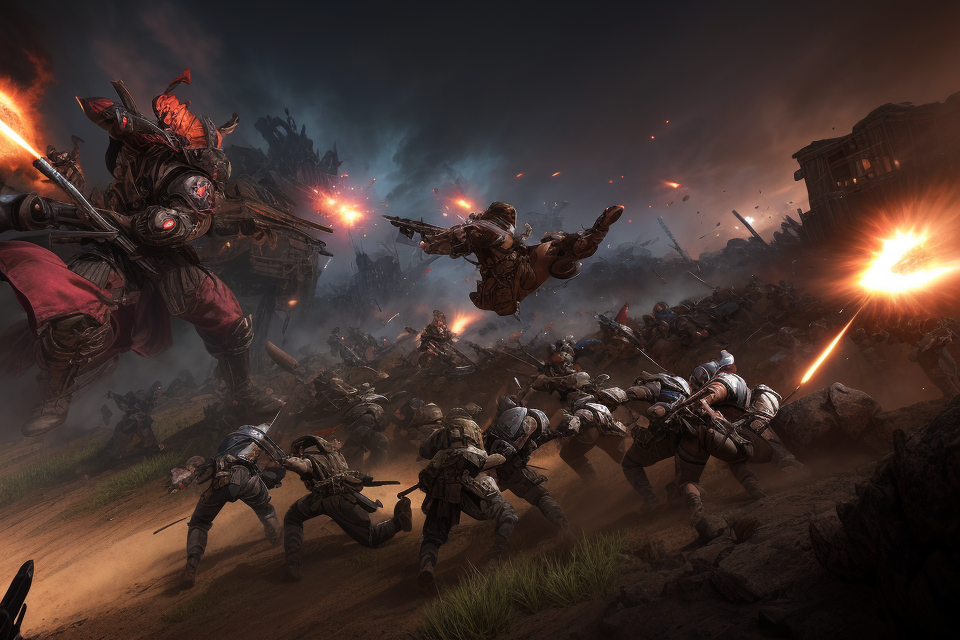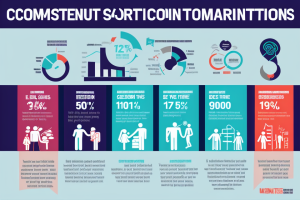
Do you ever find yourself wondering if the hours you spend playing strategy games like chess, Starcraft, or Civilization could actually be making you a better strategist in real life? The idea that playing these types of games could improve our ability to think and plan in a strategic way is an intriguing one, and it’s a topic that has been explored by researchers and gamers alike. In this article, we’ll delve into the world of strategy games and explore the question: do they really improve our ability to think and plan strategically in the real world? So, let’s get ready to take a deep dive into the world of strategy games and see if they can help us become better strategists in our everyday lives.
There is evidence to suggest that playing strategy games can improve real-life strategic thinking. These games often require players to make decisions based on limited information and to anticipate the actions of others. This type of problem-solving can transfer to real-life situations, where individuals may need to make quick decisions based on incomplete information. Additionally, strategy games often require players to consider multiple potential outcomes and to weigh the pros and cons of different options, which can improve critical thinking skills. However, it is important to note that the impact of strategy games on real-life strategic thinking may vary depending on the individual and the specific game being played.
The Connection Between Strategy Games and Real-Life Strategic Thinking
The Influence of Strategy Games on Decision Making
Strategy games, such as chess, poker, and Civilization, have been found to have a positive impact on decision-making in real-life situations. Playing these games can improve a player’s ability to anticipate and react to changing circumstances, evaluate risks, and weigh the potential consequences of different actions. This influence can be attributed to several factors:
- Developing Pattern Recognition: Strategy games often involve recognizing patterns and anticipating an opponent’s moves. This skill can be applied to real-life situations where players must analyze data and identify trends to make informed decisions.
- Enhancing Risk Assessment: In strategy games, players must evaluate the potential risks and rewards of various actions. This ability to assess risk can translate to real-life decision-making, where players must weigh the potential outcomes of different choices.
- Improving Adaptability: Strategy games often require players to adapt to changing circumstances and unexpected events. This ability to adapt can be beneficial in real-life situations, where players must be able to pivot their strategies based on new information or changing circumstances.
- Encouraging Creativity: Strategy games often require players to think creatively and come up with innovative solutions to problems. This creative thinking can be applied to real-life situations, where players must find new and unique ways to approach challenges.
- Boosting Confidence: Finally, winning at strategy games can boost a player’s confidence in their ability to make good decisions. This increased confidence can translate to real-life situations, where players may feel more empowered to make tough choices and take calculated risks.
Overall, playing strategy games can have a positive impact on decision-making in real-life situations. By honing skills such as pattern recognition, risk assessment, adaptability, creativity, and confidence, players can become better equipped to navigate the complex and ever-changing world around them.
The Role of Strategy Games in Developing Problem-Solving Skills
- Simulation of Real-World Scenarios: Strategy games simulate real-world scenarios, which can help players develop problem-solving skills by presenting them with challenges that require critical thinking and decision-making.
- Complex Situations: These games often involve complex situations that require players to analyze multiple variables, anticipate potential outcomes, and adapt to changing circumstances.
- Resource Management: Many strategy games involve resource management, which can help players develop skills in prioritizing tasks, allocating resources, and balancing competing demands.
- Enhancing Cognitive Abilities: Playing strategy games has been shown to enhance cognitive abilities, including working memory, attention, and executive function.
- Working Memory: Strategy games require players to hold multiple pieces of information in their working memory, which can help improve this cognitive skill.
- Attention: The fast-paced and dynamic nature of strategy games can help improve attention by requiring players to stay focused on multiple tasks and potential threats.
- Executive Function: Strategy games can also help improve executive function, which involves planning, organizing, and decision-making.
- Developing Strategic Thinking: Strategy games are designed to develop strategic thinking skills, which can be applied to real-life situations.
- Analysis and Planning: Players must analyze their opponents’ moves and plan their own strategy in response, which can help develop skills in analysis and planning.
- Risk Assessment: Strategy games also require players to assess risks and make decisions based on potential outcomes, which can help develop risk assessment skills.
- Adaptability: Strategy games often require players to adapt to changing circumstances, which can help develop adaptability skills in real-life situations.
The Types of Strategy Games and Their Impact on Strategic Thinking
Turn-Based Strategy Games
Turn-based strategy games are a subgenre of strategy games that involve players making decisions in a turn-based format. In these games, players take turns making moves and strategizing, often with the goal of defeating their opponents. These games are often played on a grid-based board or map, and players must carefully plan their moves in order to outmaneuver their opponents.
One of the key benefits of turn-based strategy games is that they require players to think several moves ahead in order to be successful. This type of strategic thinking is highly transferable to real-life situations, as it involves analyzing complex information and making decisions based on potential outcomes.
Additionally, turn-based strategy games often involve elements of resource management, such as managing troops or other assets. This can help players develop skills in managing resources and making efficient decisions in high-pressure situations.
Overall, turn-based strategy games can be highly beneficial for improving real-life strategic thinking skills, as they require players to think critically and make decisions based on complex information.
Real-Time Strategy Games
Real-time strategy (RTS) games are a subgenre of strategy games that involve players controlling and managing resources, units, and structures in real-time. In RTS games, players must make split-second decisions to build structures, gather resources, and deploy units in order to defeat their opponents. Examples of popular RTS games include “StarCraft,” “Warcraft III,” and “Age of Empires.”
RTS games have been shown to improve strategic thinking in several ways. First, RTS games require players to constantly assess their environment and make decisions based on current and future circumstances. This requires players to consider multiple variables and potential outcomes, which can improve their ability to think strategically in real life.
Second, RTS games often require players to adapt to changing circumstances and make split-second decisions under pressure. This can improve players’ ability to think on their feet and make quick decisions in high-pressure situations.
Finally, RTS games often require players to develop and execute long-term plans and strategies in order to achieve their goals. This can improve players’ ability to think strategically and plan for the future.
Overall, RTS games can improve strategic thinking by requiring players to constantly assess their environment, make decisions under pressure, and develop long-term plans and strategies.
MMO Strategy Games
Massively Multiplayer Online (MMO) strategy games are a type of game that can be played online with thousands of players at the same time. These games often involve building and managing resources, building and maintaining armies, and engaging in combat with other players.
Some examples of popular MMO strategy games include:
- World of Warcraft: This game is a fantasy-themed MMO where players can create their own characters and embark on quests, dungeons, and raids with other players.
- StarCraft II: This game is a real-time strategy game where players must build and manage their base, create and manage their armies, and engage in combat with other players.
- Eve Online: This game is a space-faring MMO where players can explore the galaxy, engage in combat with other players, and build and manage their own spaceships.
The benefits of playing MMO strategy games for improving real-life strategic thinking are numerous. For example, these games often require players to think ahead and plan their actions carefully, as they must manage resources and make decisions that will impact their chances of success in the long term. Additionally, these games often require players to adapt to changing circumstances and react quickly to unexpected events, which can help improve their ability to think on their feet and make split-second decisions.
However, it is important to note that the benefits of playing MMO strategy games for improving real-life strategic thinking may depend on the specific game being played and the individual player’s approach to the game. Some players may focus solely on winning at all costs, while others may approach the game more casually and focus on enjoying the social aspects of the game. Therefore, it is important to consider the specific game being played and the individual player’s approach when examining the potential benefits of playing MMO strategy games for improving real-life strategic thinking.
The Psychology Behind Strategy Games and Strategic Thinking
Flow State and Its Relation to Strategic Thinking
- The flow state is a psychological state that is characterized by a feeling of complete absorption in an activity, a heightened sense of focus and concentration, and a loss of self-consciousness.
- This state is often achieved through activities that present a challenge that is well-matched to an individual’s skills and abilities, leading to a sense of enjoyment and satisfaction.
- Strategy games, which require players to make complex decisions and plan ahead, can be particularly effective in inducing a flow state.
- When in a flow state, individuals are able to access their full range of cognitive abilities, allowing them to think and problem-solve in a more effective and efficient manner.
- As a result, playing strategy games has been shown to improve real-life strategic thinking skills, including the ability to analyze complex situations, make sound decisions, and plan for the future.
- Furthermore, research has also shown that playing strategy games can increase creativity, problem-solving skills, and the ability to think outside the box.
- These skills are highly valuable in real-life situations, such as in business, politics, and personal decision-making, and can lead to improved performance and success in these areas.
- However, it is important to note that the benefits of playing strategy games for improving real-life strategic thinking are not guaranteed for all individuals, and that other factors, such as individual differences and external circumstances, can also play a role in this process.
The Role of Reward Systems in Strategy Games and Real-Life Strategic Thinking
In strategy games, players are often rewarded for making strategic decisions that lead to successful outcomes. These rewards can take many forms, such as points, badges, or other virtual items. This system of rewards serves to reinforce positive behavior and encourage players to continue making strategic decisions.
However, the impact of these rewards on real-life strategic thinking is a topic of debate. Some researchers argue that the rewards in strategy games may actually hinder the development of real-life strategic thinking skills. This is because players may become too focused on the rewards and fail to consider the underlying strategic principles.
On the other hand, other researchers suggest that the rewards in strategy games can actually enhance real-life strategic thinking. This is because the rewards provide a clear indication of what behaviors are valued in a given situation, and players may be able to transfer these values to real-life situations.
Overall, the role of reward systems in strategy games and real-life strategic thinking is a complex issue that requires further research. While the rewards may have some impact on strategic thinking, it is important to consider the underlying psychological processes at play.
The Impact of Strategy Games on Professionals and Business Strategy
Enhancing Military Strategy through Gaming
Strategy games have been used as a tool to enhance military strategy and decision-making among professionals in the military. These games simulate real-life scenarios and allow players to make decisions based on different variables and outcomes. By playing these games, military personnel can improve their strategic thinking and problem-solving skills, which can be applied in real-life situations.
One example of a strategy game used in the military is the “Global Thunder” game, which is used to simulate nuclear conflict scenarios. This game allows military personnel to practice decision-making in high-pressure situations and to explore different outcomes based on their choices.
Another example is the “Command and Conquer” game, which is used to train military personnel in tactical decision-making. This game simulates real-life battle scenarios and allows players to make decisions based on different variables, such as terrain, weather, and troop movements.
In addition to these examples, strategy games have also been used to train military personnel in logistics and supply chain management. By playing these games, personnel can improve their ability to plan and execute complex operations, which can be crucial in real-life military situations.
Overall, the use of strategy games in the military has been shown to improve decision-making and strategic thinking among professionals. By simulating real-life scenarios, these games provide a safe and controlled environment for personnel to practice and improve their skills, which can be applied in real-life situations.
Strategy Games and Business Strategy: Lessons Learned
While strategy games are primarily designed for entertainment purposes, they can also offer valuable insights and lessons that can be applied to real-life strategic thinking, particularly in the business world. Here are some key lessons that professionals can learn from strategy games:
- Understanding the importance of foresight: Strategy games often require players to anticipate their opponents’ moves and plan ahead. This can help professionals develop a better understanding of the importance of foresight in strategic thinking. By anticipating potential challenges and opportunities, businesses can make more informed decisions and stay ahead of the competition.
- Developing adaptability: Strategy games are often unpredictable, and players must be able to adapt to changing circumstances. This can help professionals develop their ability to think on their feet and adapt to changing market conditions or competitive landscapes.
- Identifying and exploiting weaknesses: Strategy games often require players to identify and exploit their opponents’ weaknesses. This can help professionals develop a better understanding of how to identify and exploit competitors’ vulnerabilities in the business world.
- Balancing risk and reward: Strategy games often require players to balance risk and reward, weighing the potential benefits of a particular decision against the potential costs. This can help professionals develop a better understanding of how to balance risk and reward in business decision-making.
- Building strategic partnerships: Strategy games often require players to form alliances and build strategic partnerships in order to achieve their goals. This can help professionals develop a better understanding of the importance of building strategic partnerships in the business world, and how to effectively collaborate with others to achieve shared goals.
Overall, strategy games can provide valuable insights and lessons that can be applied to real-life strategic thinking, particularly in the business world. By incorporating these lessons into their decision-making processes, professionals can gain a competitive edge and make more informed decisions.
The Dark Side of Strategy Games: Addiction and Its Effects on Strategic Thinking
The Relationship Between Strategy Game Addiction and Problematic Thinking
Research has shown that excessive playing of strategy games can lead to addiction, which in turn may have a negative impact on a player’s real-life strategic thinking. The relationship between strategy game addiction and problematic thinking is a complex one, and this section will explore it in more detail.
One of the main issues with strategy game addiction is that it can lead to a narrow focus on the game itself, which can crowd out other important areas of a player’s life. This can include neglecting work or school responsibilities, as well as ignoring important personal relationships. This narrow focus can also spill over into other areas of a player’s life, including their ability to think strategically in real-life situations.
Another way in which strategy game addiction can affect real-life strategic thinking is by creating a false sense of mastery. In strategy games, players can often achieve success by using a specific set of tactics or strategies. However, this does not always translate to real-life situations, where there may be many more variables at play. As a result, players who are addicted to strategy games may become overly reliant on these tactics, and struggle to adapt to the complex and ever-changing real-world environment.
Furthermore, research has shown that strategy game addiction can lead to decreased impulse control, which can negatively impact a player’s ability to think strategically in real-life situations. For example, players who are addicted to strategy games may have difficulty resisting the urge to act immediately on a particular situation, rather than taking the time to carefully consider all of the available options. This can lead to hasty and poorly thought-out decisions, which can have serious consequences in real-life situations.
In conclusion, the relationship between strategy game addiction and problematic thinking is a complex one, and further research is needed to fully understand the mechanisms at play. However, it is clear that excessive playing of strategy games can have a negative impact on a player’s real-life strategic thinking, and that players who are addicted to these games may struggle to think critically and make effective decisions in real-life situations.
The Effects of Strategy Game Addiction on Real-Life Strategic Thinking
Excessive playing of strategy games can lead to addiction, which may have detrimental effects on real-life strategic thinking. The following are some of the effects of strategy game addiction on real-life strategic thinking:
- Cognitive Distortion: Strategy game addiction can cause cognitive distortion, where a person’s perception of reality becomes skewed. This can lead to poor decision-making in real-life situations, as the individual may struggle to distinguish between what is real and what is not.
- Lack of Attention: Strategy games often require a lot of attention and focus. When a person becomes addicted to these games, they may struggle to pay attention to real-life tasks, leading to a lack of focus and an inability to make strategic decisions in real-life situations.
- Poor Time Management: Strategy games can be time-consuming, and when a person becomes addicted to them, they may struggle to manage their time effectively. This can lead to missed deadlines, unfinished tasks, and a lack of productivity in real-life situations.
- Decreased Social Interaction: Strategy games can be highly isolating, and when a person becomes addicted to them, they may withdraw from social interactions in real-life. This can lead to a lack of communication skills, poor interpersonal relationships, and a decreased ability to work collaboratively in real-life situations.
- Anxiety and Stress: Strategy games can be highly stressful, and when a person becomes addicted to them, they may experience anxiety and stress in real-life situations. This can lead to difficulty concentrating, irritability, and a decreased ability to make strategic decisions in real-life situations.
Overall, the effects of strategy game addiction on real-life strategic thinking can be significant. It is important for individuals to be aware of the potential dangers of addiction and to take steps to avoid it, such as setting limits on game time and engaging in other activities that promote healthy decision-making and strategic thinking.
The Future of Strategy Games and Their Impact on Strategic Thinking
Advancements in Strategy Games and Their Potential Impact on Strategic Thinking
The future of strategy games holds great promise for enhancing real-life strategic thinking. With the rapid advancements in technology, strategy games are becoming increasingly sophisticated and realistic. These advancements have the potential to significantly impact the way players think and make decisions in real-life situations.
One of the key advancements in strategy games is the integration of artificial intelligence (AI). AI has enabled game developers to create more intelligent and unpredictable opponents, which can challenge players to think and adapt quickly. This can help players develop their ability to anticipate and respond to unexpected situations in real-life.
Another advancement in strategy games is the incorporation of real-time decision-making. In these games, players are required to make decisions on the spot, just like in real-life situations. This can help players develop their ability to think and act quickly under pressure, which is a crucial skill in many real-life scenarios.
Furthermore, many strategy games now incorporate elements of social dynamics and teamwork. These games require players to work together and coordinate their actions to achieve a common goal. This can help players develop their ability to work effectively with others, which is an essential skill in many real-life situations.
In addition, strategy games are becoming increasingly customizable, allowing players to tailor the game experience to their own strengths and weaknesses. This can help players identify their areas of improvement and focus on developing their skills in those areas.
Overall, the advancements in strategy games have the potential to significantly enhance real-life strategic thinking. By challenging players to think and act quickly, work effectively with others, and adapt to unexpected situations, strategy games can help players develop the skills necessary to succeed in a wide range of real-life scenarios.
The Importance of Research in Understanding the Relationship Between Strategy Games and Strategic Thinking
- Examining the Correlation Between Strategy Games and Strategic Thinking
- Investigating the Link Between Gameplay and Real-Life Strategic Thinking
- The Impact of Game Design on Cognitive Development
- The Influence of Player Interaction on Problem-Solving Abilities
- Identifying the Factors That Enhance or Hinder the Transfer of Gaming Skills to Real-Life Scenarios
- The Role of Player Motivation in Gameplay and Its Impact on Strategic Thinking
- The Effect of Different Genres and Gameplay Styles on Strategic Thinking Skills
- Investigating the Link Between Gameplay and Real-Life Strategic Thinking
- Assessing the Effectiveness of Strategy Games in Developing Strategic Thinking
- Quantitative Methods for Evaluating the Relationship Between Strategy Games and Strategic Thinking
- Surveys and Questionnaires to Measure Player Perceptions and Attitudes
- Pre- and Post-Test Designs to Assess Cognitive Improvement
- Qualitative Methods for Exploring the Experiences of Strategy Game Players
- In-Depth Interviews and Focus Groups to Understand Player Perspectives
- Content Analysis of Player Feedback and Game Reviews
- Quantitative Methods for Evaluating the Relationship Between Strategy Games and Strategic Thinking
-
Addressing the Limitations and Challenges in Researching the Relationship Between Strategy Games and Strategic Thinking
- Ethical Considerations in Studying the Impact of Strategy Games on Cognitive Development
- The Challenge of Controlling for Individual Differences and External Factors in Game-Based Research
- Balancing Quantitative and Qualitative Methods to Provide a Comprehensive Understanding of the Relationship Between Strategy Games and Strategic Thinking
-
The Importance of Multidisciplinary Approaches in Strategy Game Research
- The Role of Psychology, Education, and Game Studies in Understanding the Relationship Between Strategy Games and Strategic Thinking
- Integrating Perspectives from Different Disciplines to Provide a Holistic View of Game Impact on Cognitive Development
- Collaboration Between Researchers, Game Designers, and Educators to Improve Strategy Games’ Ability to Enhance Strategic Thinking
- Advancing the Field of Strategy Game Research
- Addressing Current Gaps in Knowledge and Identifying Future Research Directions
- Developing New Methodologies and Technologies for Studying the Relationship Between Strategy Games and Strategic Thinking
- Encouraging Interdisciplinary Collaboration and Knowledge Sharing to Enhance the Understanding of Strategy Games’ Impact on Real-Life Strategic Thinking
FAQs
1. What is a strategy game?
A strategy game is a type of game that requires players to make strategic decisions in order to achieve a goal or objective. These games often involve elements of planning, resource management, and problem-solving.
2. Can playing strategy games improve real-life strategic thinking?
Yes, playing strategy games can improve real-life strategic thinking. Strategy games require players to think critically and make decisions based on limited information, which can help develop skills such as problem-solving, planning, and risk assessment.
3. Are there any drawbacks to playing strategy games?
Like any activity, playing strategy games can have potential drawbacks if not played in moderation. Excessive playing can lead to a lack of focus on real-life responsibilities and may negatively impact social interactions.
4. Are there any specific strategy games that are better for improving strategic thinking?
There is no one-size-fits-all answer to this question, as different strategy games emphasize different skills. Some popular strategy games that are often recommended for improving strategic thinking include chess, Civilization, and Starcraft.
5. How can I incorporate strategy games into my daily routine?
Incorporating strategy games into your daily routine can be as simple as setting aside time each day to play a game. You can also try incorporating elements of strategy into your real-life decision-making, such as planning out your daily tasks or considering the potential outcomes of different choices.






